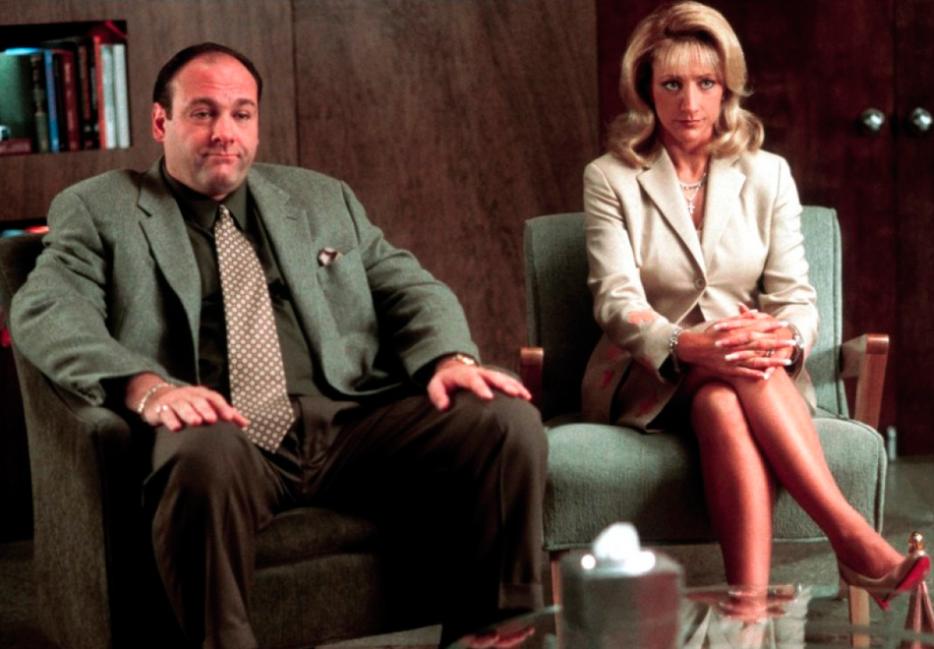Andrew Pyper’s 2008 mystery The Killing Circle is a creepily dark little story that managed to update the urban paranoia of ‘70s American films into the increasingly scrubbed cityscape of ‘00s Toronto, but there was always one detail that didn’t sit quite right: Its main figure, Patrick, is a writer who is utterly ashamed to be a TV critic.
For a certain generation, I guess, “TV critic” is useful shorthand for pointless hackery, writers whose skills and sense have grown too dull to do anything other than regurgitate the networks’ factory-grade Gerber mush. But in 2008? With The Sopranos and The Wire already in the books, Mad Men and Breaking Bad just firing up, original, auterish voices sprouting up even in the depths of the cable dial? A self-hating television critic in the mid-aughts would be like a film writer in the ‘70s lamenting the lack of good musicals.
GQ correspondent Brett Martin lays out the reason for that generational cognitive dissonance in Difficult Men: Behind the Scenes of a Creative Revolution, his succinct and satisfying behind-the-scenes look at what he calls television’s Third Golden Age, though which might be more properly understood as the rise of the cable series. His title does double duty, referring both to the troubled antiheroes that became the era’s defining characters, as well as the often-tempestuous show-runners whose behaviour sometimes too neatly mirrors the psychodrama of their creations.
It’s a fine parallel, working both as longview critique of a distinctive era of television and allowing Martin to dip into writing room anecdotes at will. But in its way, it also reveals some of the limits of this particular golden age, in storytelling forms if not in the structure of the writing staff.
Like his book, almost all of the series Martin cites—he goes particularly in-depth on The Sopranos and The Wire, with significant asides reserved for Six Feet Under, Deadwood, The Shield, Mad Men and Breaking Bad—focus heavily on “great men,” even if those men are hopelessly flawed or outright evil. Though the best of them (well, shit, all of them: “best” is a pretty useless descriptor in that group) also flesh out their worlds with rich, deep supporting casts, the central themes of each show, and the lion’s share of the drama, are embodied by that one central character, with the rest of the gang useful as mirrors, negative images and other jumping-off points.
The most obvious critique of this is the fact that, in many of these cases, both writers and characters are nearly all men. I’m not interested in going all Hugo Schwyzer here, so I’ll leave that topic to those better equipped to discuss it. But the gender angle is also less interesting to me because, as relatively unique as a deeply flawed, antiheroic central female figure would be, she’d still mostly be unique only because of her gender (for all that might say about where we are as a culture and etcetera and so on).
It’s the “great” part of the equation that I think is more troubling—the basic assumption that the individual is the driving force of their own life, and even significantly shapes the world around them. This has some resonance with certain cherished American ideals, but more saliently it makes for a good, clean story: the hero’s journey and all that, even if he’s an antihero and, of course, the whole point is that he isn’t going anywhere.
There’s a problem with a construction that neat, though, not the least of which is that it’s a poor way to actually understand the world, especially for series that have as much to say about it as these do. We’re all the heroes of our own narrative, but even in Martin’s own book framework, the idea of the lone genius is constantly frustrated. Sopranos show-runner David Chase is arguably the most individualistic of the lot, firing writers almost at will and prone to moody isolation, but even he always has a protege (first Damages creator Todd Kessler, then Mad Men’s Matthew Weiner) and a solid, steady hand to talk to (Brad Grey, later Terence Winter). And, that doesn’t even get into how important James Gandolfini was in shaping the character of Tony Soprano with occasional ad-libs and deeper readings.
But even if you’re not as horny for verisimilitude and mimetic story structures as I am, any trope is going to get diminished from overuse. Those shows listed above are fairly different in setting and tone, but their themes range from similar to basically identical, depending on the magnification of your microscope: at the most basic level, it’s all just man against himself. (Though admittedly, this once was an insanely rare thing to see on television.)
I don’t want to imply this is an invalid storytelling method—its worth is obvious in the pedigree of those shows—but it is one that’s unnecessarily limiting for a medium of television’s scope. One of the great revelations of this era, explicitly referenced in the book, has been the depth with which television can address character: 50 hours of story lets you find nuance impossible in 90 minutes. Perhaps television’s next goal, then, should be to find ways to expand that to more characters—to bring that kind of depth to a show’s whole world, not just its central figure (and maybe a couple others surrounding him).
That wouldn’t even be a revolution so much as evolution, following a different branch of the family tree. If most of the great shows of the past decade followed The Sopranos’ lead and built out from the starting point of a deeply flawed main character, there’s one that ran concurrently and yet stood apart: The Wire. The story of a city, it managed to sacrifice none of the emotional catharsis or depth of understanding, while also granting those traits to almost every life it portrayed (or at least vastly more than average). It captured both the self-importance of trying to impose yourself on the world and the absurdity of that act when everyone else is doing the exact same thing. From here, for that reason, it still looks like the best thing television has ever done.
That doesn’t look set to change anytime soon, but there are at least more series that share its spirit. Though Mad Men started with a heavy individualistic bent, its world has grown significantly, especially with its last season. Friday Night Lights was a vastly kinder world, but a big one nonetheless. And though it’s literally a world away from the streets of Baltimore, Game of Thrones is The Wire’s purest progeny, insomuch as its characters’ lives are almost entirely decided by forces well beyond their control.
All those stories are messier, and harder on both viewers and writers—more difficult, as it were. But if we’ve learned anything from the last decade and a half of television, it’s that the difficult and messy are not to be underestimated.






